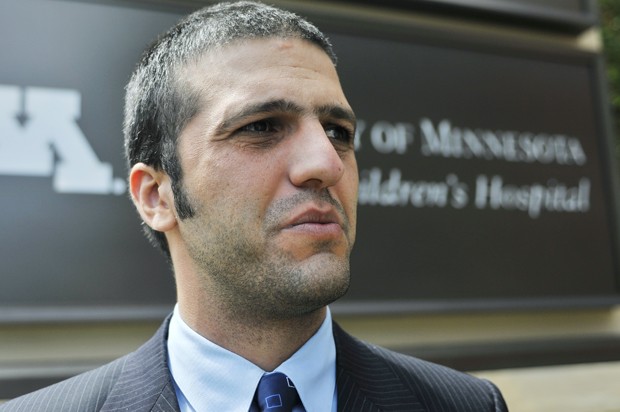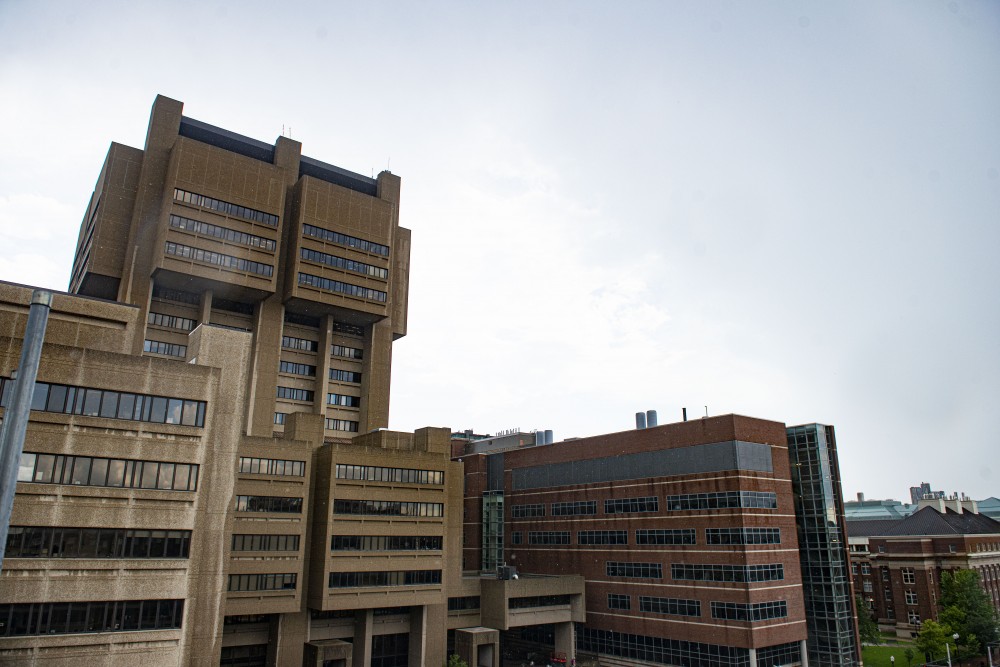After a three-week visit to the United States meeting with experts, attending conferences and visiting hospitals and blood banks, Dr. Ahmad Masoud Rahmani returned to Kabul, Afghanistan last Saturday with a vision of what he can create in his home country.
Just over a year ago, he was appointed director of the Afghanistan National Blood Safety and Transfusion Services (ANBSTS), a relatively new branch of the country’s Ministry of Public Health.
He spent more than two weeks of his first stay on American soil around the University of Minnesota, stopping at Hennepin County Medical Center, the Minneapolis Veterans Affairs Medical Center and blood banks such as the Twin Cities chapter of the American Red Cross.
Before his flight home, he visited the American Red Cross headquarters in Washington, D.C., and the Centers for Disease
Control and Prevention.
“It was very exciting for me,” he said, his enthusiasm and determination cutting through a thick accent. “I learned a lot.”
The process of building a safe and consistent blood program will be long, and the end product may never resemble the system in America, but Rahmani said his visit was about finding inspiration and gathering ideas, not copying what he has seen.
Given the challenges present in Afghanistan, replication would be impossible. War has plagued the country for several decades, including the past nine years of U.S. military presence.
“You still have tanks in the streets,” said Terri Konstenius McCullough, program director of International Blood Safety Programs at the University and Rahmani’s host during his stay.
Through Konstenius McCullough, the University has formed a partnership with ANBSTS.
She traveled overseas to assess the country’s existing blood supply system last year and contributed to the report, “Status of blood banking and the blood supply in Afghanistan,” led by native M. Tayyeb Ayyoubi in 2005.
The crippled blood supply system in Afghanistan, led by the Central Blood Bank of Kabul, relied largely on blood donations from family members. There was no culture of blood donation, the report said.
Blood transfusion is permitted under the Islamic faith.
Based upon its population, the World Health Organization recommended that Afghanistan should have 300,000 units of blood annually. Afghanistan had less than 30,000 units between 1998 and 2002, according to the report.
The already inadequate blood supply had been further damaged by lax screening for diseases.
Neither Rahmani nor Konstenius McCullough underestimate the challenges ahead. Konstenius McCullough will return to Afghanistan several times before the end of the year to assist, and promised to see the program through until its completion.
“Developing a blood safety program is a long-term effort,” she said. “You’re not going to fix it and move away.”
Luckily, Rahmani and the rest of ANBSTS don’t have to start from scratch, but can improve on some of the old system’s
existing infrastructure.
In addition, ANBSTS will receive $1.1 million to aid its effort from the French Development Agency over the next two and a half years.
ANBSTS has not received any funding from organizations in the United States — a fact Dr. Jeffrey McCullough, Konstenius McCullough’s husband, laments.
A professor of laboratory medicine at the University, McCullough also contributed to the report on the blood system. He tried years ago to get funding for reform in Afghanistan from American political groups, but was turned away.
Now with the war in Afghanistan is in the public eye again, that may change.
Along with his possessions and an overwhelming amount of knowledge and ideas, Rahmani will return home with an overwhelming amount of support from everyone he met with, McCullough said. Too many things were impressive,” Rahmani said of his stay.
Daily Email Edition
Get MN Daily NEWS delivered to your inbox Monday through Friday!

Published April 18, 2024

Published April 18, 2024

Published April 18, 2024
Trending
Afghan public health blood clinic official visits U
The U is working to help create a stable blood supply system.

Image by JOE MICHAUD-SCORZA, DAILY
Dr. Ahmad Masoud Rahmani speaks on Monday, June 7 in front of the Amplatz Children’s Hospital. Rahmani spoke about challenges he has faced while implementing a national blood transfusion service for Afghanistan.
by Kyle Potter
Published June 16, 2010
Leave a Comment
More to Discover
Advertisement
The Minnesota Daily • © 2024 The Minnesota Daily • Privacy Policy • FLEX Pro WordPress Theme by SNO • Log in













